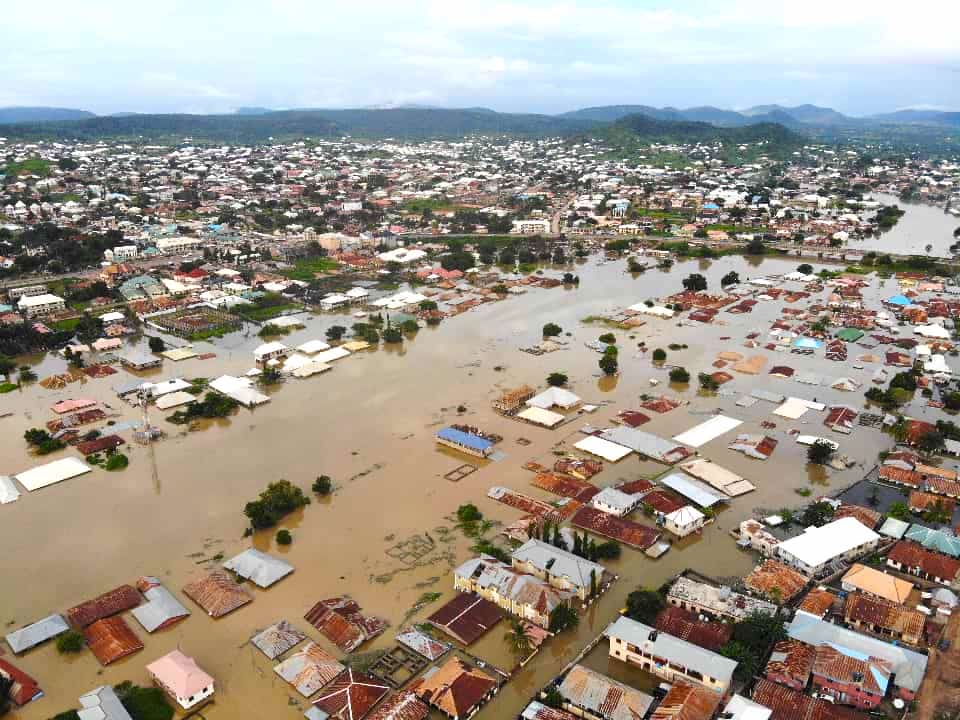
FLOODING: IRC CALLS ON FG TO PRIORITIZE GLOBAL CLIMATE AGENDA
By Aishat Momoh. O.
The International Rescue Committee (IRC), alarmed by the disastrous floods in Nigeria, has urged authorities to take preventive action to lessen the flooding situation while urging them to prioritize global climate agenda.
It issued a warning that vulnerable and conflict-affected nations like Nigeria must be at the forefront of the climate agenda as severe flooding threatens more than 30 states.
The Federal Government has issued flood alerts in several areas throughout the states of Kano, Borno, Adamawa, Katsina, Kebbi, Zamfara, Sokoto, Delta, Kaduna, Akwa Ibom, Plateau, Jigawa, Kwara, and Niger State since the beginning of July this year.
The Federal Government was urged by the IRC to be one of the nations prioritized in the global climate agenda as COP28 drew near, with specific commitments to open up additional money for adaptation and climate resilience.
To keep the climate crisis from turning into a catastrophe, the IRC also pushed for the growth of collaborations with regional civil society organizations and investments in innovations.
The International Rescue Committee (IRC) has already tested an anticipatory cash program in the Northeast utilizing data from government meteorological organizations with which it collaborated to forecast a generational flood.
Instead of the customary post-shock response, the IRC study teams compared the outcomes of giving cash transfers to households before a climate shock. Families that received money days before the tragedy were less likely to go hungry and more likely to take preventative measures, according to the findings. This strategy can lessen the short-term effects of climate threats while enhancing resilience over time.
Babatunde Ojei, the country director for Nigeria for the IRC, stated: “The floods in Nigeria last season had terrible repercussions, including the loss of at least 600 lives and the forced displacement of more than 1.5 million people across various states. Nearly 35,000 children were documented as patients at IRC clinics in Borno, Adamawa, and Yobe states alone who had received waterborne illnesses as a result of the floods, making them more vulnerable to further infections.
“The disruption to the agricultural calendar, including planting of seeds or harvesting, and the potential destruction of fields due to rising waters, is equally alarming as it will impact the food supply to the population.
“Already, nearly 25 million Nigerians are likely to go hungry this year; malnutrition levels in northeast and northwest Nigeria continue at higher levels than this time last year or the previous four years, with nearly two million people receiving humanitarian food assistance in April 2023. The risk of further disruption to education services must also be considered, especially given that Nigeria already ranks as one of the highest in the world for out-of-school children.”
On her part, IRC Regional Deputy Director, West Africa Hannah Gibbin, said: “What worries us most is the risk of increased cases of cholera, malaria, valley fever, and other diseases linked to polluted rainwater or runoff. Our colleagues in the field have identified that one of the main causes of the cholera epidemic is the lack of hygiene and sanitation facilities, such as latrines, in many areas.We are working rs to build these spaces and boreholes.
“In preparation for this year’s flooding, we have also launched an effective programme to distribute cash in advance to the communities most at risk.”
This enables them to better prepare themselves in advance to minimise the impact of these floods. More early action programmes need to be launched to mitigate the impact of flooding on families and their livelihoods.”
